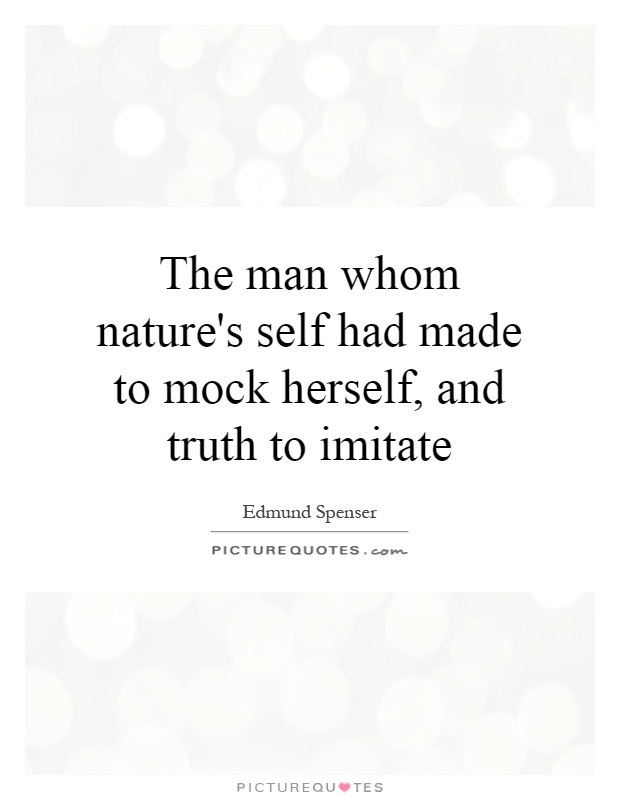
The man whom nature's self had made to mock herself, and truth to imitate

The man whom nature's self had made to mock herself, and truth to imitate
In Edmund Spenser's epic poem "The Faerie Queene," the character described as "the man whom nature's self had made to mock herself, and truth to imitate" is none other than the villainous figure of Duessa. Duessa is a complex and intriguing character who embodies deception, manipulation, and falsehood. She is a master of disguise and illusion, using her beauty and charm to deceive those around her.Duessa's ability to deceive and manipulate others is a reflection of her nature as a creature of darkness and deceit. She is described as being "false, feigned, and forged" in her appearance and actions, using her beauty and allure to ensnare and corrupt those who come into contact with her. Duessa's name itself is a play on the word "deceit," highlighting her role as a symbol of falsehood and treachery.
Duessa's ability to mimic and imitate truth is a key aspect of her character. She is able to present herself as virtuous and pure, despite her true nature as a corrupt and malevolent being. Duessa's ability to deceive and manipulate others is a reflection of the power of falsehood and illusion in the world of "The Faerie Queene."
Duessa's role as a character who mocks nature and imitates truth is a powerful commentary on the nature of deception and falsehood in the world. In a world where appearances can be deceiving and truth is often obscured by lies and illusions, Duessa serves as a cautionary tale about the dangers of trusting in appearances and superficial beauty.
Overall, Duessa is a fascinating and complex character in "The Faerie Queene," embodying the themes of deception, manipulation, and falsehood that run throughout the poem. Her ability to mock nature and imitate truth serves as a powerful reminder of the dangers of deceit and illusion in the world, and her character adds depth and complexity to Spenser's epic narrative.












 Friendship Quotes
Friendship Quotes Love Quotes
Love Quotes Life Quotes
Life Quotes Funny Quotes
Funny Quotes Motivational Quotes
Motivational Quotes Inspirational Quotes
Inspirational Quotes